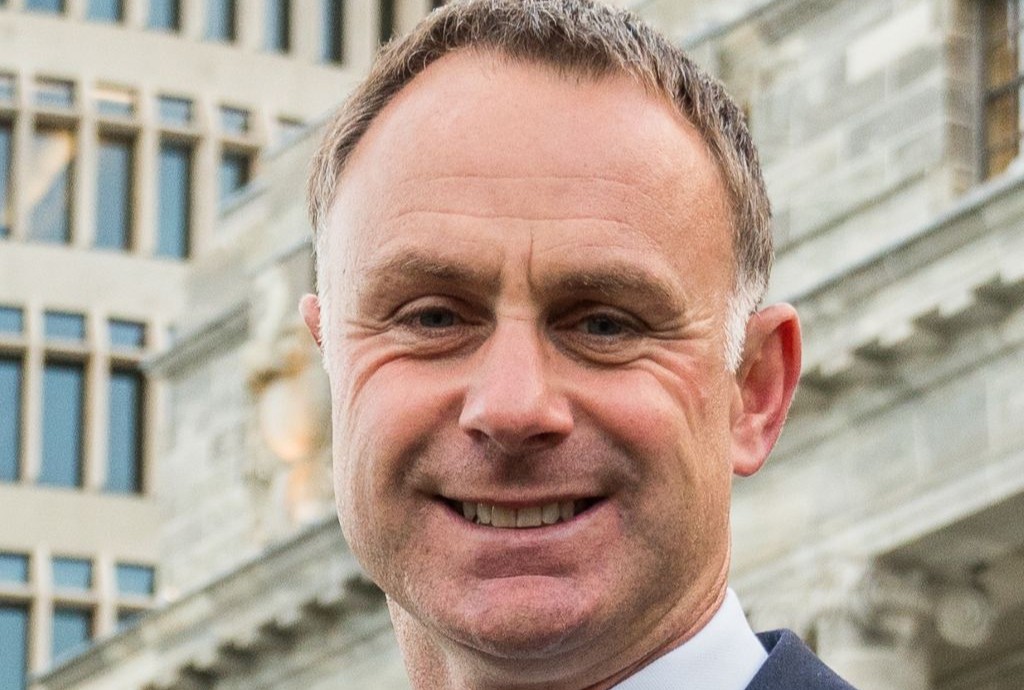Table of Contents

Parliament has returned, and we’re focused on holding the Government to account for their policies, decisions, and highlighting how they will affect the lives of everyday Kiwis.
Catch up on the latest in politics with our Week in Review below.
- Government gives up on those left behind in Afghanistan
- National launches plan to supercharge vaccination
- Labour recklessly delayed vaccine shipments
- Where on earth is saliva testing?
- New businesses being left out in the cold by Labour
Bumbling Government gives up on those left behind in Afghanistan
It is appalling that the Government still does not know how many New Zealanders and Afghan civilians who worked alongside our Defence Force remain stranded in Afghanistan.
Minister of Defence Peeni Henare was asked multiple times yesterday, and his answer was that he simply didn’t know.
This is a shocking admission of this Government’s failure to act to evacuate these people when it should have – months ago – and its ineptitude in understanding and dealing with a situation that will almost certainly become a global humanitarian crisis.
Our Government should immediately and unequivocally reiterate its commitment to the people of Afghanistan, especially those brave Afghan civilians who worked alongside New Zealand during our deployment. We must offer – and provide – safe passage and refuge in our country.
These people were key to the safety and security of our brave Defence Force personnel. We must not leave them to now fend for themselves.
It is especially troubling, too, that our Government is yet to officially condemn the Taliban terror regime. While the rights of women and girls to do the very things we consider basic human rights – such as getting an education – are being outlawed, our Prime Minister has ‘begged’ for and “urged” respect for the rights of these vulnerable Afghanis from a brutal, archaic regime that treats women and girls as chattels.
You can read more from Judith Collins here.
National launches plan to supercharge vaccination
With the Delta variant of Covid-19 having well and truly arrived in New Zealand, the National Party is calling on the Government to supercharge the vaccination rollout throughout the country with a new strategy.
To date, New Zealand has been the slowest in the OECD to rollout the vaccine and the Government’s negligent approach has created vulnerabilities that Delta has exposed.
We should be aiming for at least 100,000 vaccination doses administered per day, every day. We also need to target our frontline border and high-risk workers, younger people who are vectors for the virus, and accelerate delivery of the vaccine to 12-15-year-olds.
National’s vaccination plan is called ‘Vulnerable and Vectors’. Spearheaded by Covid-19 Response spokesperson Chris Bishop, National’s plan has five main components:
- Urgently vaccinate the vulnerable
- Vaccinate the vectors
- Supercharge the rollout
- Plan for the future
- Get moving on ‘true’ vaccine passports
A short-term elimination strategy can only work in tandem with a far more aggressive and accelerated vaccination programme if we are to avoid future lockdowns and get New Zealand back on an even footing with the outside world.
You can read more from Judith Collins and Chris Bishop here.
Labour recklessly delayed vaccine shipments
The Labour Government has recklessly delayed vaccine shipments to New Zealand, putting the health and freedom of all New Zealanders at risk.
In June Covid-19 Response Minister Chris Hipkins revealed he was speaking with Pfizer to deliver some of the doses that were originally supposed to arrive in September, to instead arrive in October and November.
New Zealand’s vaccine rollout has been negligently slow, now that it’s finally ramping up the Prime Minister says demand needs to lessen because her Government slowed down our vaccine shipments.
New Zealand signed contracts with vaccine manufacturers late, we got around to ordering our vaccine later than other countries, we refused to offer an incentive payment to Pfizer for earlier delivery, and we still haven’t got around to ordering any booster shots.
This lockdown happened because our vaccination rate was too slow. It could go on for a lot longer now because the Government delayed the vaccine supplies we need to get ourselves out of lockdowns.
You can read more from Chris Bishop here.
Where on earth is saliva testing?
More than a week ago Director-General of Health Dr Ashley Bloomfield told New Zealanders the Government would be talking to private sector partners to look at saliva testing in the community.
With people waiting sometimes up to 10 hours or more in the testing queue, and then in some cases a further five days for their results, why aren’t we making use of saliva testing to add to our surge capacity?
At this time testing is absolutely critical. We clearly have issues with our surge capacity for testing and saliva testing could help. Private sector providers are there, ready to go.
It’s been almost a year since saliva testing was recommended by Sir Brian Roche and Heather Simpson to be implemented at the border and the Government has dragged its heels in rolling it out and now we see the situation repeating itself with community testing.
As National has repeatedly said, saliva testing has an important role to play in keeping New Zealanders safe, not only at the border and in MIQ facilities, but also in our community.
The Government needs to stop delaying and get to work on immediately implementing saliva testing as an option to try and get on top of this Delta outbreak.
You can read more from Chris Bishop here.
New businesses being left out in the cold by Labour
There’s no doubt that our small businesses are doing it tough right now as the Level 4 restrictions in lockdown bite, The Labour Government must extend Covid support to new businesses established in the past six months.
While businesses who need it are able to apply for assistance through the Resurgence Support Payment, Small Business Cash flow and Business Debt Hibernation schemes, this support is only available to sole traders and companies who have been in operation for more than six months.
There are a growing number of new businesses that were trading viably before the Level 4 restrictions came into force and who now need support to get through. With no end in sight for those in Auckland, and the Government yet unable to say how long the rest of the country will be in Level 3, many businesses are struggling to pay their bills as a result of the loss of their income.
The Government should make sensible changes to the scheme so that new businesses established before the Level 4 lockdown, who meet the criteria of a 30 per cent reduction in turnover, are eligible to apply for assistance from the start of the lockdown restrictions.
You can read more from Todd McClay here.
Please share this BFD article so others can discover The BFD.









